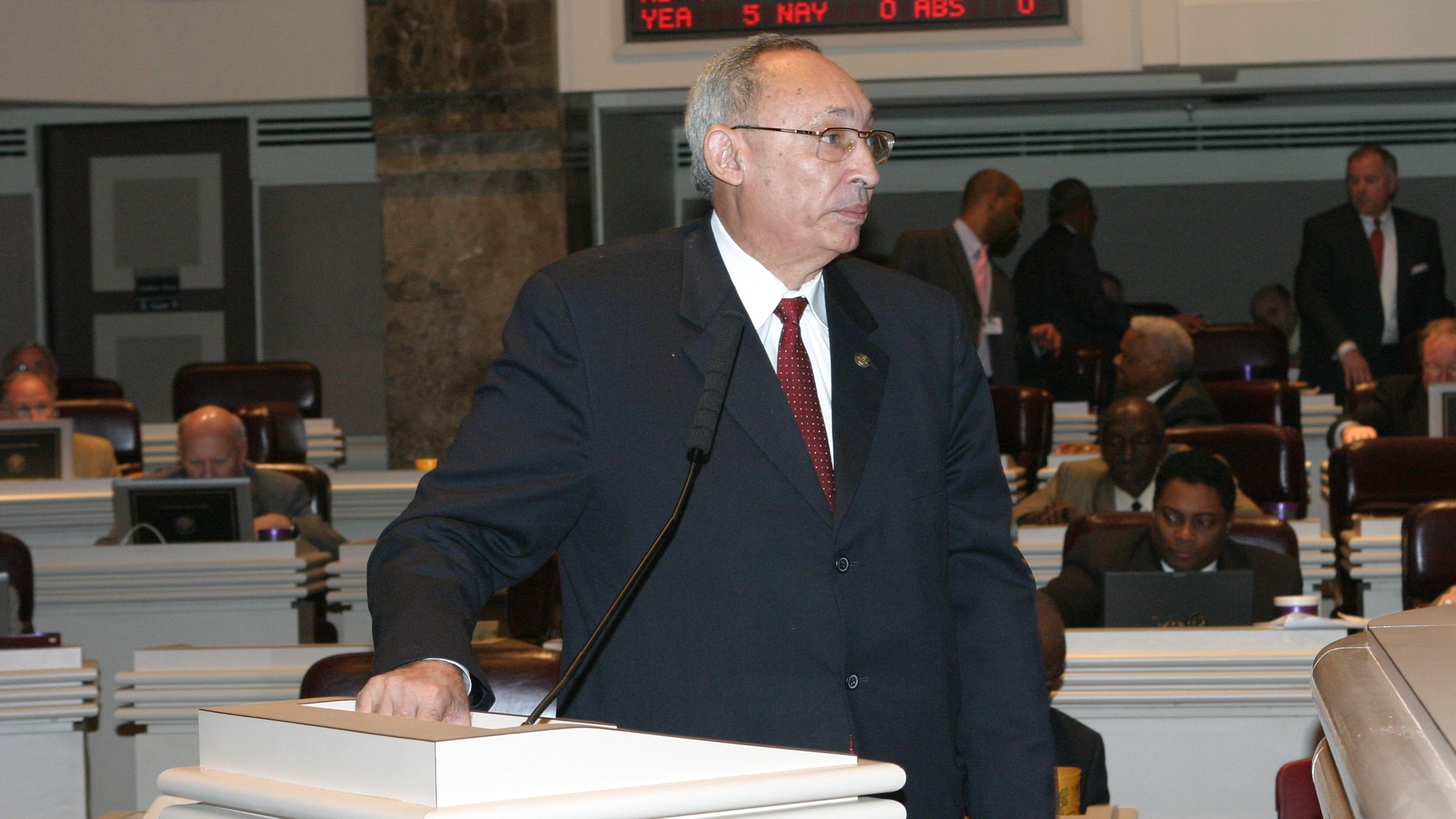About 15 years ago, Penni McClammy was at a doctor’s visit with her dad, longtime state Rep. Thad McClammy, when she heard a story that caught her by surprise. The doctor asked a routine question of her father — have you ever had a blood transfusion before?
“I was expecting him to say no. But instead, he comes out with, ‘Yeah, about 40 years ago when the police beat me,’” Penni McClammy said. “It was an incident in the Civil Rights Movement. I was shocked. I thought I knew all the stories about my father. But that’s how much life my father lived — you could never know it all.
“His truly was a life well lived.”
Thad McClammy passed away Saturday morning at an Atlanta hospital after a long bout with various illnesses, Penni said. He was 79.
His death leaves a void that will not be easy to fill.
“You can’t replace someone like Thad McClammy — you just can’t do it,” said former Montgomery state Rep. John Knight. “His death is a loss for the state, the city and most importantly his local community. Because that’s where he focused his most efforts — on making sure the people of his district were taken care of and had the resources they needed.”
He started early in his life, and long before he was elected to public office.
The valedictorian of his high school class at J.F. Shields, McClammy graduated when he was just 16. He moved to Tuskegee University to start his college studies and finished at Alabama State University.
He landed at ASU in the midst of the Civil Rights Movement, and he didn’t sit on his hands. McClammy was active in the movement as a college student — and it was at one of the many protests he attended where he received the blows that led to that blood transfusion — and was eventually assigned the job of driving some of the movement’s biggest names.
“He would pick them up at the airport when they came in and get them where they needed to go,” Penni said. “He loved doing it. And I think that time inspired him to continue helping his community and people.”
Penni recalled her father working diligently on community projects when he was the dean and president of Trenholm State Technical College — positions he held for 20 years. He helped bring much needed improvements to Montgomery’s west side neighborhoods, playing vital roles in the building of libraries, community centers and establishing the first ever west side police precinct.
After he was elected to the House of Representatives in 1994, his public service only increased.
“He was always taking care of people — I can remember him getting up in the middle of the night to go check on people after storms and trying to get money for various projects to help others,” Penni said. “He never put himself first. He was a true public servant.”
And that’s probably why so few people disliked McClammy. It’s not normal to spend 30 years in elected office — particularly when you’re a champion for civil rights — and have virtually zero enemies, but that is the reality for McClammy.
“He just didn’t operate that way,” said Knight, who served alongside McClammy for two decades. “He was fine with you disagreeing with him. The next day, y’all could be best friends and he was going to treat you that way.”
McClammy made national headlines in 2006, when he sponsored the Rosa Parks Act. The bill, which ultimately passed, granted pardons to anyone who was arrested under the state’s illegal Jim Crow laws.
But it was his work securing funding for various local projects and educational initiatives, Penni said, that gave McClammy the most joy.
“He was a fighter for his community,” she said. “That’s what I want people to remember most about him.
“There’s the line from the old song, ‘May the works I’ve done speak for me.’ His did, and they will forever.”



















































